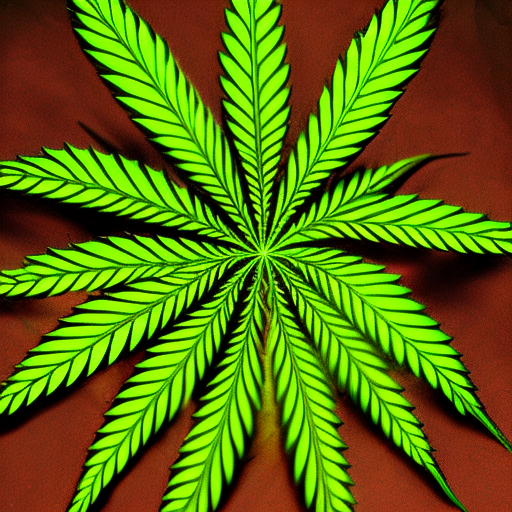
Yo, what’s good? It’s your boy Dan and today we’re talking about something that’s been buzzing in the medical marijuana community – cannabis as a treatment for ADHD and ADD. You know how cannabis is known for mellowing people out and putting them in a relaxed state? Well, that might just be what people with ADHD and ADD need to calm their racing thoughts and lack of focus.
Cannabis has compounds that interact with the endocannabinoid system (ECS) in our bodies, which is responsible for regulating many bodily functions including cognitive function. If the ECS is out of balance, symptoms of ADHD and ADD can start to appear.
So, let’s break it down. ADHD is a common childhood condition that affects over 6 million children in the US alone. It can manifest in different ways but is generally characterized by lack of attention, difficulty concentrating, and disruptive behavior. Adults can also be diagnosed with ADHD, which may have gone unnoticed during their childhood years.
There are three types of ADHD – inattentive ADHD, hyperactive/impulsive ADHD, and combined ADHD. Inattentive ADHD is when a person exhibits lack of attention without signs of hyperactivity. This can be highly problematic for children and adults, who might easily get distracted, lose focus easily, be disorganized, find it hard to follow instructions, and actively avoid tasks that require substantial mental effort.
Hyperactive/impulsive ADHD features symptoms of hyperactivity and impulsiveness but without the inattention seen in the first form of the condition. This can present as excessive talking, conversational interruption, excessive fidgeting, and appearing to be always on-the-go.
Combined ADHD is when a person experiences the symptoms of inattention, hyperactivity, and impulsivity combined.
Researchers are still not entirely sure what causes ADHD but it’s believed to have multiple origins including neurological factors and genetics.
The usual treatments for ADHD include medications like Ritalin and Adderall which are stimulants that boost dopamine and norepinephrine levels in the brain. Non-stimulants such as Strattera may also be prescribed. Behavioral therapy is also utilized along with exercise, adequate sleep, proper nutrition, mindfulness meditation, time spent in nature or practicing yoga.
However, cannabis might just offer another alternative for those who find conventional treatments ineffective or who experience undesirable side effects from medication. Anecdotal evidence suggests that using cannabis may help reduce symptoms of hyperactivity and impulsivity which can lead to improved focus and decreased restlessness.
Several research studies support this claim including a 2017 study published in the journal European Neuropsychopharmacology which administered cannabinoid medication to 30 adults with ADHD. The results showed significant improvement in hyperactivity and impulsivity with a trend towards improvement in attentiveness in adults with ADHD.
Dr. David Bearman of Santa Barbara suggests that difficulty with focus and attention might stem from an endocannabinoid deficiency within the body meaning there are not enough endocannabinoids produced internally. THC found in cannabis interacts with the same receptor site as anandamide which could help boost activation of this receptor even with low levels of endogenous cannabinoids.
However, people should consider using cannabis on an individual basis as those experiencing ADHD are more likely to develop substance abuse disorders especially if they start using cannabis at a young age. Heavy cannabis use during teenage years can have serious adverse effects on brain development.
Some researchers suggest microdosing as an option for self-medication especially for teens who are looking to experiment. Microdosing involves taking tiny amounts of cannabis so small that psychoactive effects are not noticeable or only very subtle.
Different strains of cannabis can also affect individuals differently so it’s important to be strategic with strains when self-medicating. Sativa-dominant strains may help boost focus and attention while indica-dominant varieties may help to calm down hyperactivity.
So there you have it folks – cannabis might just be a potential treatment for those experiencing symptoms of ADHD and ADD. But always remember to do your own research and consult with a medical professional before making any decisions about using cannabis as a treatment option. Stay lit!




Ayy, I feel like weed might help some folks chill and focus, ya know. It do be easing them nerves for real. But everybody different, gotta find what work for you. Keep it real, fam.
Yo I been hearin a lot bout weed helpin with ADHD. Some folks say it chill dem out and help focus. But I wonder if it work for everybody or if it just make some people lazy. Gotta be careful and do ya research ya feel me?
Ayo, I feel like weed might help some folks chill out and focus better, ya know. But everybody different, so gotta be careful and see what work for you. Just keep it real and do your research, fam.